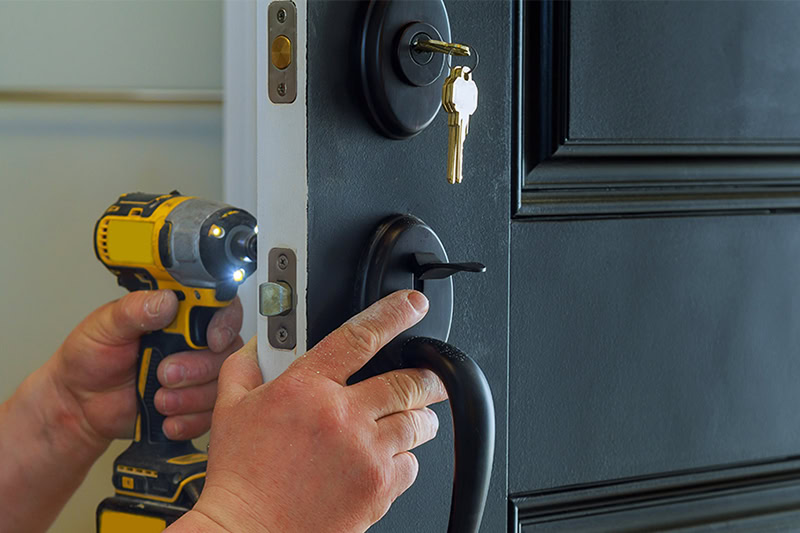Why Do Some States Require Locksmith Licensure?

When it comes to securing your commercial property in Massachusetts, you can rely on a qualified locksmith to handle sensitive security systems, including access control and master key systems.
As you choose a locksmithing team for your business needs in Boston, or any of the other communities in the greater Suffolk County region, we at Action Lock & Key urge you to consider company credentials, certifications, training, experience, and reputation.
We are confident in our knowledgeable and skilled technicians who expertly install and service master key systems, high-security locks, exit devices, and other essential security systems.
Should you also consider licensing when searching for a locksmith?
License or No License?
State lawmakers around the country have answered that question for you. Some require licenses, and some do not.
Licensing is one way to ensure locksmiths have the necessary training, experience, and background to handle commercial security. States that require licenses view the mandate as consumer protection from fraud, subpar service, and dangerous practices.
States that do not require a license rely on the free market to regulate the profession. In the absence of government regulation, consumers use reviews, word-of-mouth recommendations, and other factors to determine if the locksmith they select can do the job.
We take a look at licensing in this blog and consider locksmithing certifications.
States Requiring Licenses
Fifteen states require locksmiths to be licensed: Alabama, California, Colorado, Florida, Georgia, Illinois, Maryland, Nevada, New Jersey, North Carolina, Oklahoma, Texas, Virginia, and Washington.
Although most states do not require a state license, businesses and consumers should verify requirements. Some cities and counties may have their own rules for regulating the profession.
Patchwork Licensing Across the U.S.
According to IBISWorld, a global company providing research on thousands of industries worldwide, there were 26,017 locksmith businesses in the United States in 2023, a one percent increase over the previous year.
Regulatory boards or departments typically handle locksmith guidelines in states that mandate licenses. These states require locksmiths to comply with specific rules as a prerequisite to receiving a license and setting up shop.
Requirements may include:
- Background Checks: A criminal background check may be a prerequisite for licensing, ensuring that individuals with a history of theft or related offenses are not entrusted with sensitive security information.
- Examinations: Many states require locksmiths to pass written or practical examinations demonstrating their knowledge of locksmithing techniques, security best practices, and relevant regulations.
- Apprenticeships or Experience: Some states mandate a certain amount of experience or completion of an apprenticeship program before a locksmith can be licensed.
- Continuing Education: Locksmiths may be required to participate in continuing education to stay up-to-date with the latest technologies and security advancements to maintain their licenses.
What Is the Value of Licensing?
- Consumer Protection: Licensing ensures locksmiths follow best industry practices, and it provides a mechanism for consumers to file complaints if necessary.
- Accountability: The licensing authority can investigate and address complaints and misconduct.
- Trust: Many customers feel more confident hiring a licensed professional because they can verify the locksmith’s credentials, making it easier to avoid scams or unqualified individuals.
- Expertise: Locksmiths typically must demonstrate a level of competency, often through an exam, as a prerequisite to obtaining a license.
- Marketing: A license can be an excellent marketing tool, differentiating the license holder from competitors.
Unlicensed Locksmiths
Locksmiths in states without licensing requirements can pursue certifications and additional training to help distinguish themselves from other businesses. Without state oversight, unlicensed locksmiths work hard to build trust with their community.
Certifications, positive online reviews, memberships in professional organizations, and transparent business practices all contribute to building trust and leading to success in an unlicensed environment.
In states without mandates, customers must be proactive in finding a qualified locksmith. Looking for certifications, checking online reviews, and asking for references are essential steps in finding a competent and trustworthy locksmith.
Knowing a locksmith has taken the initiative to get certified contributes to peace of mind. As a customer, you may have greater confidence in a locksmith’s abilities if you choose someone with certifications.
Transparency about their qualifications and credentials also helps you make an informed decision.
Locksmith Certifications
Locksmiths can pursue various certifications and credentials from professional organizations like the Associated Locksmiths of America (ALOA). These certifications demonstrate advanced knowledge and expertise in specific areas of locksmithing, such as:
- Registered Locksmith (RL) demonstrates basic competency in locksmithing.
- Certified Professional Locksmith (CPL) indicatesa higher level of expertise and experience.
- Certified Master Locksmith (CML) is the highest level of certification, signifying mastery of the locksmithing profession.
Hire a Qualified Locksmith
Do not take chances with your business’s security. Let us at Action Lock & Key secure your commercial property in Boston. Call us at 781-229-9992 or request service online.
